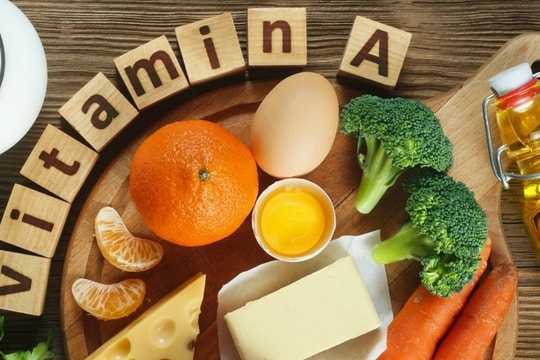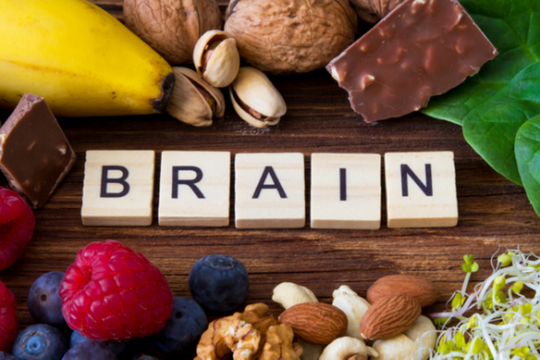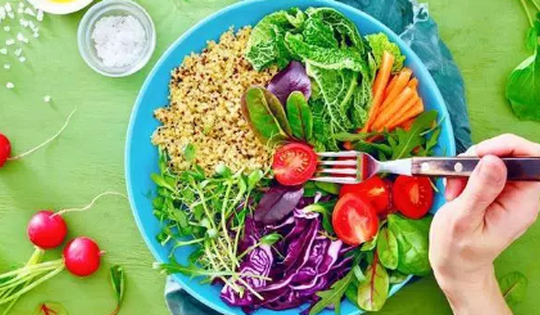Liver is healthier thanks to eating this popular fruit
Avocados are a popular fruit that can help you have better skin, reduce the risk of heart disease, diabetes, and can even improve liver health.
Avocados are a nutrient-dense fruit, packed with vitamins and minerals. Although each serving of avocado is high in calories, it is also rich in fiber, vitamin K, folate, vitamin C, B vitamins, vitamin E, vitamin A, copper, manganese, magnesium, phosphorus, zinc, iron, and potassium, along with some omega-3 fatty acids, omega-6 fatty acids, choline, calcium, selenium, and more.
100g avocado (peeled and seedless) contains about 167 calories, 8.7g carbohydrates, 2g protein, 15.4g fat and 6.8g fiber.
According toHealthlineIn a 2015 study, researchers reported that avocados may help lower blood fats and help prevent liver damage in people with non-alcoholic fatty liver disease.

Avocado is also a fruit that is good for liver health. Photo: Gettyimages
Similarly, the authors of a 2019 review also found that avocados contain phenols, which are monounsaturated fatty acids. These may help reduce the risk of metabolic syndrome, cardiovascular disease, and non-alcoholic fatty liver disease.
A 2022 study in 60 mice found that avocado oil helped reduce non-alcoholic fatty liver disease by reducing inflammation and oxidative stress and improving mitochondrial function.
However, more research is needed to prove the benefits of eating avocados for people with non-alcoholic fatty liver disease.
Similarly, according toScience DailyIn 2000, researchers in Japan discovered that avocados contain powerful chemicals that can reduce liver damage.
To evaluate the protective activity of foods against liver damage, the researchers fed 22 different fruits to a group of mice with liver damage caused by galactosamine, a potent liver toxin.
Researchers say avocados are the most effective of these fruits at slowing liver damage. In addition to providing flavor and nutrition, avocados appear to improve liver health. People should eat more of them.
However, scientists do not know whether the results from mouse studies will translate to liver protection in humans, and how much avocado extract is needed to have a beneficial effect. They say more research is needed.
Still, the study adds to the growing body of evidence supporting avocados’ many health benefits. In addition to being good for the liver, the green-skinned fruit is rich in vitamins E and C, fiber, potassium, and folate, a vitamin that helps reduce birth defects in pregnant women.
Although avocados are high in fat, most of the fat is monounsaturated, which has been shown to lower cholesterol levels.
On the sheetThe Hindustan Times, nutritionist Shruti Bharadwaj suggests adding avocado to your diet to treat fatty liver. Rich in HDL cholesterol (good cholesterol), avocado is recommended for people with non-alcoholic fatty liver disease and it can help reduce fat and prevent liver damage.
According to Medlatec General Hospital, avocados are rich in vitamins E and C, which act as antioxidants to neutralize free radicals and protect liver cells from damage. In addition, this fruit also contains vitamins E and K, which help cleanse toxins in the liver, fight inflammation, and regulate cholesterol levels in the body. Therefore, consuming this fruit is also very good for the liver.
They also contain compounds that increase the body's natural glutathione levels, which helps flush toxins from the liver.
What to note when eating avocado
Dr. Phung Tuan Giang, President of the Vietnam Institute for Research and Development of Traditional Medicine, said that when consumed in moderation, avocado is a nutritional supplement for a balanced diet. However, people with kidney disease should not eat too much avocado because avocado contains a lot of potassium.
Although uncommon, some people are allergic to avocados, causing symptoms such as hives and itching.
Finally, remember that more avocado is not always better.
"In fact, avocados are high in calories, so eating too much can lead to weight gain, especially if we do not make other adjustments to our diet. Eating avocados twice a week or eating a moderate amount every day (about 100-130 grams) will bring many health benefits," Dr. Giang emphasized.






